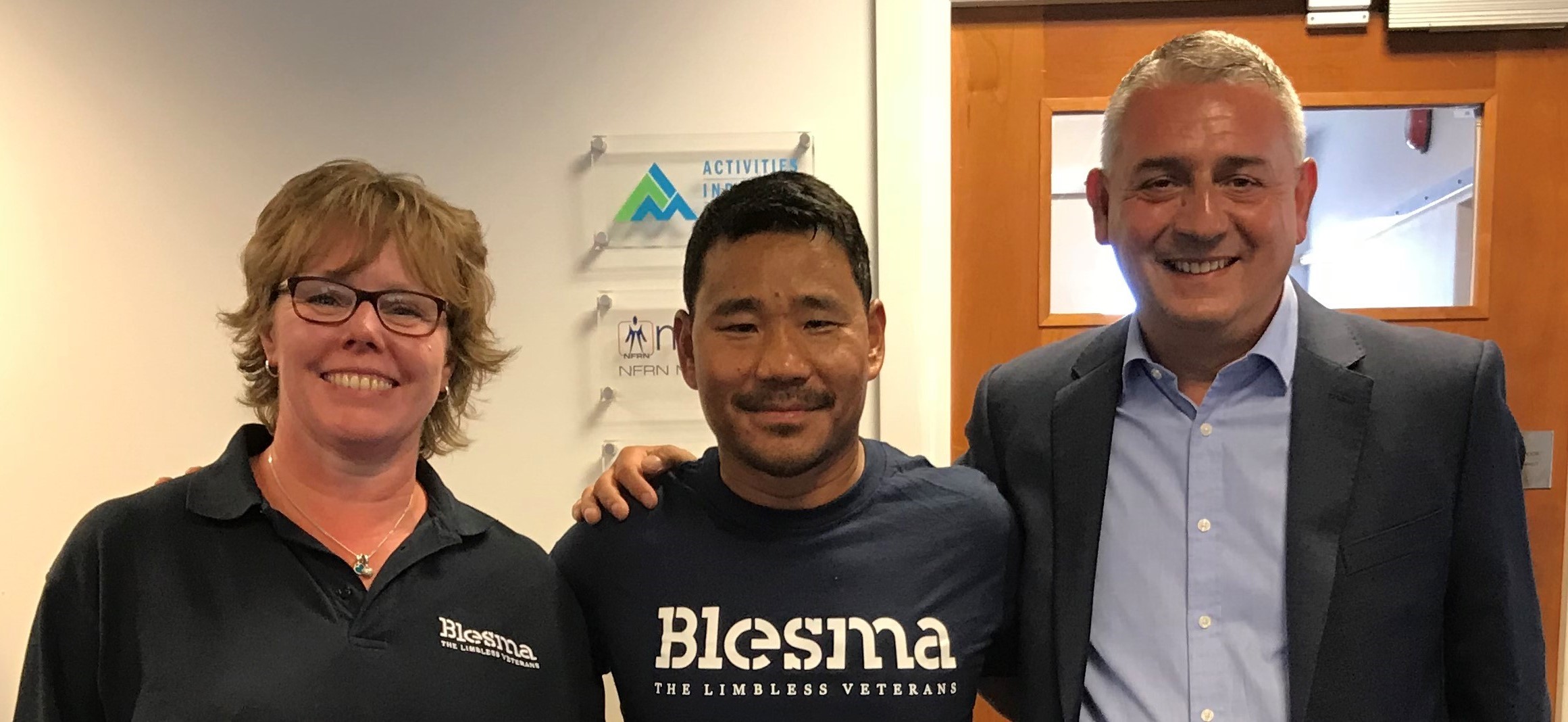
Last Friday, we had a visit from Blesma, the Military Charity for Limbless Veterans. And that’s when we met Hari.
It’s not every day you meet someone like Hari. Born in Nepal to a farming family, Hari grew up in a remote area, where he established a sense of determination from a young age. School was a 45-minute, barefoot walk from his village.
His military career began in 1999, at the age of 19, when he joined the British Army, serving in the Royal Gurkha Rifles, which brought him over to the UK.
Over the years, Hari served around the world in many different conflicts, but whilst serving in Afghanistan in 2010, an improvised explosive device (IED) caused him multiple injuries and the loss of both legs above the knee. He describes waking up the next day in Camp Bastion, being scared to lift the covers to discover the full extent of his injuries. He told us how he’d expected to sustain injuries during his military career, but never thought he would lose both legs.
‘I didn’t know what to do’, explains Hari, ‘being in the Army was all I had ever known. So, I started thinking ‘what can I do physically?’ That was my aim.’
It’s hard to imagine just how you begin to rebuild your life, let alone achieve seemingly impossible goals following an incident of this nature. But this is something that military personnel must face daily.
 And Hari is certainly a shining example of this. Since his injury, Hari has learnt and re-learned many physical activities including a variety of wheelchair sports, alpine and Nordic skiing, kayaking, archery, rock climbing, cycling and parachuting.
And Hari is certainly a shining example of this. Since his injury, Hari has learnt and re-learned many physical activities including a variety of wheelchair sports, alpine and Nordic skiing, kayaking, archery, rock climbing, cycling and parachuting.
When asked how he even began to contemplate achieving what he has so far, he says ‘It’s the simple things, accomplishing the small things day by day, like brushing your teeth’. For those of us imagining what it would be like to recoupe and move on from life-changing injuries, we may envisage ourselves being impatient, disheartened and feeling hopeless. Not Hari.
‘Life is all about adaptation. [It’s] about learning, experiencing as much as possible.’ He goes onto explain how understanding and being aware of emotions help an individual to achieve their goals, ‘finding who you are, finding out about yourself, your weaknesses and moving forward’.
Hari’s optimism, courage and determination are infectious.
Embarking on a journey to achieve his physical goals, Hari also wanted to do something to help others, ‘The human endeavour is so amazing. [I] want to encourage other people to achieve their dreams.’
He explained how life in Nepal for people with injuries and disabilities is extremely challenging. Without disabled toilets and adaptive facilities, it’s perhaps not surprising that the Nepalese Ministry of Culture, Tourism and Civil Aviation passed a ruling in 2017 that banned double amputees and visually impaired climbers from climbing Mount Everest. For Hari, this was unacceptable. At the time of the ruling, he was training to climb Mount Everest. Climbing mountains has always been a dream, and in 2017 he broke the world record for being the first bilateral above the knee amputee to climb above 6,000m. As you can now imagine, Hari was not going to give up. In March 2018, he helped overturn this regulation, and is expected to climb Mount Everest with the Conquering Dreams team next year.
An inspiration, Hari is a living, breathing embodiment of what it is to overcome all obstacles and achieve your dreams. If we dream something, we can achieve it. As Hari says, ‘Nothing’s impossible’.
Blesma is Regis Mutual Management Limited’s (of which The Military Mutual is an appointed representative and managed by) chosen charity to support for the year. Blesma was formed following WWI, where 40,000 British Service men returned home with life-changing injuries. Established as a national charity in 1932, it supports limbless veterans in the UK for life.


